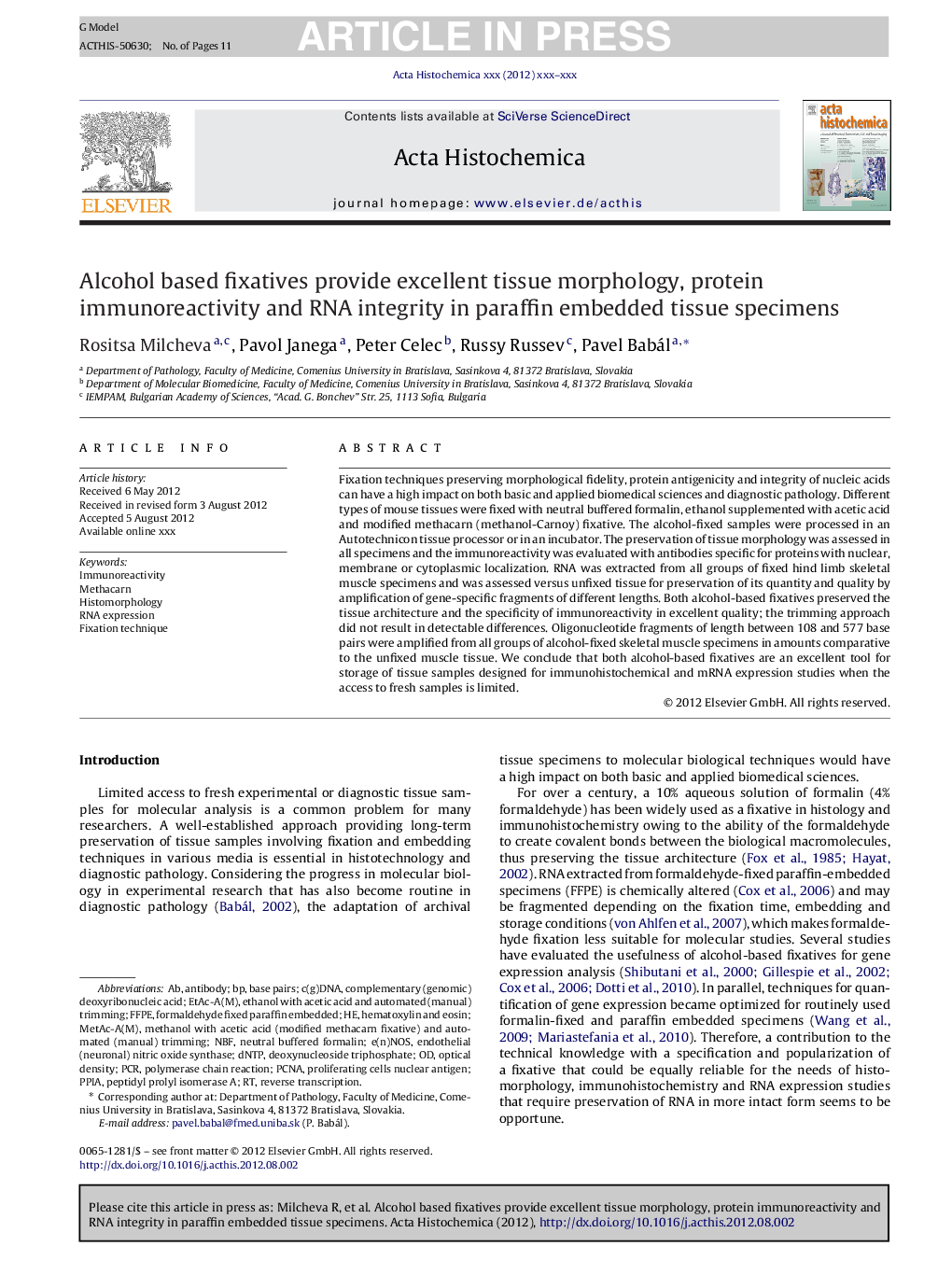| Article ID | Journal | Published Year | Pages | File Type |
|---|---|---|---|---|
| 10747233 | Acta Histochemica | 2013 | 11 Pages |
Abstract
Fixation techniques preserving morphological fidelity, protein antigenicity and integrity of nucleic acids can have a high impact on both basic and applied biomedical sciences and diagnostic pathology. Different types of mouse tissues were fixed with neutral buffered formalin, ethanol supplemented with acetic acid and modified methacarn (methanol-Carnoy) fixative. The alcohol-fixed samples were processed in an Autotechnicon tissue processor or in an incubator. The preservation of tissue morphology was assessed in all specimens and the immunoreactivity was evaluated with antibodies specific for proteins with nuclear, membrane or cytoplasmic localization. RNA was extracted from all groups of fixed hind limb skeletal muscle specimens and was assessed versus unfixed tissue for preservation of its quantity and quality by amplification of gene-specific fragments of different lengths. Both alcohol-based fixatives preserved the tissue architecture and the specificity of immunoreactivity in excellent quality; the trimming approach did not result in detectable differences. Oligonucleotide fragments of length between 108 and 577 base pairs were amplified from all groups of alcohol-fixed skeletal muscle specimens in amounts comparative to the unfixed muscle tissue. We conclude that both alcohol-based fixatives are an excellent tool for storage of tissue samples designed for immunohistochemical and mRNA expression studies when the access to fresh samples is limited.
Keywords
Related Topics
Life Sciences
Biochemistry, Genetics and Molecular Biology
Biochemistry
Authors
Rositsa Milcheva, Pavol Janega, Peter Celec, Russy Russev, Pavel Babál,
